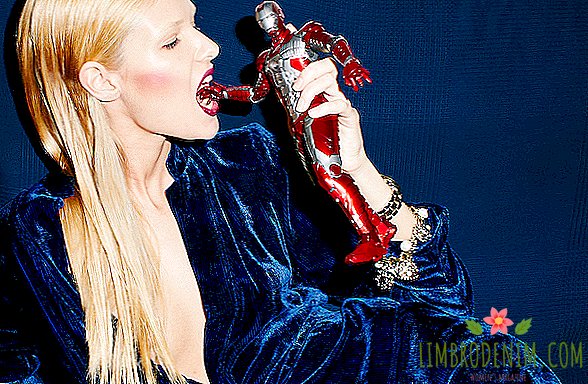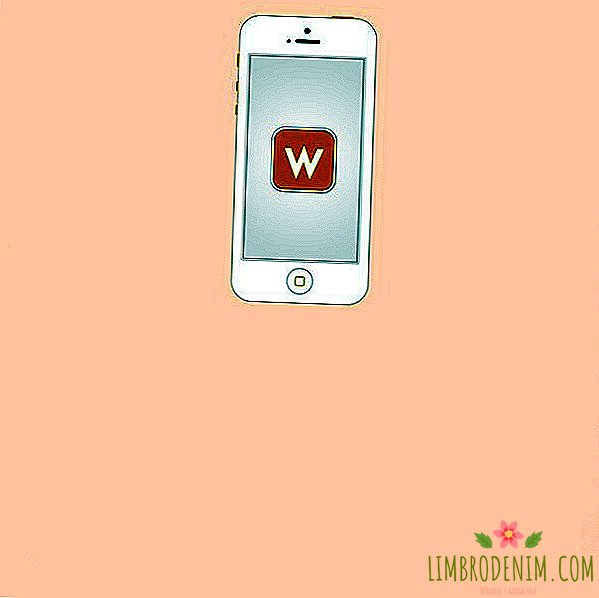Blossom: Do vitamins work for hair and nails
Nutritional supplements and vitamin-mineral complexesThere are hundreds of promises to improve the condition of nails and hair, and, if advertisements are followed, it seems that of these tablets and capsules, nutrients get directly to the right places, bypassing the intestines, bloodstream and liver. We understand why hair and nails can suffer at all, can we make them shiny and strong, drank a course of vitamins, and what causes hair loss after pregnancy.

What contain "beauty vitamins"
Typical composition - vitamins of group B (in particular, biotin), C and E, zinc, selenium and silicon, with slight variations. In principle, this formula is not very different from the usual multivitamin "non-directional" action. Here is a description of one of the products designed to improve the condition of hair and nails: "Beta-carotene, vitamin C, E, selenium with antioxidant activity protects the skin from the damaging effects of free radicals, UV rays and environmentally harmful environmental factors." In the description of the vitamin complex intended "for older people", vitamin C is already described as a substance that "provides immune protection, increases the body's resistance to infections, reduces capillary permeability and fragility."
"Zinc and silicon, participating in the metabolism of connective tissue, normalize the condition of the skin and nails," - another quote from the description of "beauty vitamins." At the same time, connective tissue is one of the most common in the body, it is the basis of bones, and cartilage, tendons, and subcutaneous tissue, and the "shell" of organs, and even the bone marrow. Is it possible to make vitamin C from one pill protect the skin, and from the other to increase resistance to infections? Or so that zinc and silicon go directly to the hair roots and nails? The answer is negative, not to mention the fact that not all of these effects generally work in people, especially if we are talking about low doses.
It turns out that the abundance of food additives with different "focused" action is nothing more than marketing positioning. In the presence of huge competition, each manufacturer seeks to find a new niche - and this is where the multivitamins “for hair”, “for nails”, “for improving mood”, and also “organic” or “natural” appear.
Why hair and nails get worse
If the condition of the skin and its appendages, which include nails and hair, has changed against the background of complete health and well-being, it is likely that you need to revise the care or adapt it to the current season: one thing is when the hair is dried out by the sun and sea water, the other is when they became brittle due to the constant wearing of hats in the cold. Single grooves or white spots on the nails may appear, for example, because of too aggressive effects of tools during manicure. Unfortunately, it is sometimes easy to panic after searching on the Internet - the same grooves are presented as a sign of psoriasis, heart failure, and even sepsis; but it should be understood that only by changes on the nails, with general well-being, these states do not appear.
According to the deputy chief physician of the Moscow Scientific and Practical Center for Dermatovenerology and Cosmetology of the Moscow Health Department Oksana Porshina, a change in the quality of hair and nails can indeed be a manifestation of systemic disorders, and then a dermatologist or trichologist examination is required. If common diseases are identified, then they should be treated - it can be part of taking vitamins prescribed by a doctor. But for most healthy people, complex supplements do not need to be taken, with rare exceptions - for example, folic acid is necessary in preparation for pregnancy and in its first trimester, vitamin D is really shown to many, and WHO insists on taking iron supplements for all women with steady menstrual cycle.

What to do if hair falls out
In general, the loss of about one hundred hairs per day is considered the norm - since the life cycle of each hair includes several phases, at the same time 50-150 of them are daily in the loss phase. Sometimes the growth and loss cycle becomes synchronous with a larger number of hairs, and the loss becomes more noticeable - in women it is closely related to hormonal changes, in particular, the state after pregnancy and menopause. During pregnancy, the duration of the resting phase, when the hair stays in place, lengthens - but after two or three months after giving birth, a large amount of hair simultaneously has a loss phase. This should not cause a panic, because less often than before pregnancy, the hair will not become - only those that have "accumulated" during this time will fall out.
The same situation may occur after a serious illness with a very high temperature or severe stress; these are temporary conditions that need not be treated, but simply endured. If there was no serious physical or mental stress, and the hair began to fall out - it is worth being examined for endocrine and autoimmune causes and, of course, to deal with nutrition. Hair loss can be associated with a lack of protein and iron in the diet (vegetarians are at risk), deficiency of zinc, fatty acids and a number of vitamins - it is important that an excess of selenium, vitamin A and vitamin E can contribute to hair loss, therefore, independent taking vitamin supplements may even worsen the situation.
So, the algorithm of actions: if the hair falls out after childbirth, a serious illness or treatment by methods such as radiation or chemotherapy, then there is no need to do anything to restore them. If there were no such factors, it is worth going to a doctor for examination and reviewing the diet: a varied and balanced diet is important for the health of all organs and systems, including the skin and hair. It is not necessary to drink vitamins, if their deficiency is not confirmed, only a specialist can reveal the deficiency; for example, the lack of biotin, one of the most popular components of the “beauty vitamins”, in one study was noted only in 38% of women complaining of hair loss.
How to strengthen the nails
As Oksana Porshina notes, the quality of nails (as well as hair) is largely determined by genetics, but it depends on the nature and diet or on the characteristics of the work being done. Of course, it is worth remembering the basic principles of hygiene: do not use other people's files or nail scissors, wash your hands and use moisturizers, and when there are obvious changes, do not rely on traditional medicine, but talk to your doctor. According to research data, people with good nutrition, no special food additives to improve the condition of the nails are not shown.
Acceptance of biotin often helps people with increased brittle nails - but this condition develops for a variety of reasons, and you need to try to eliminate them or reduce their impact. The list of these reasons is huge: these are injuries during work or manicure, constant work with toxic substances like solvents, an insufficiently balanced diet, systemic diseases and infections. Strengthening the nails, without changing anything in the diet or lifestyle, is unlikely to succeed - and the senselessness of taking "special" vitamins becomes obvious again, if their deficiency is not revealed.
Photo:arayabandit - stock.adobe.com, Andrzej Tokarski - stock.adobe.com, sianstock - stock.adobe.com





